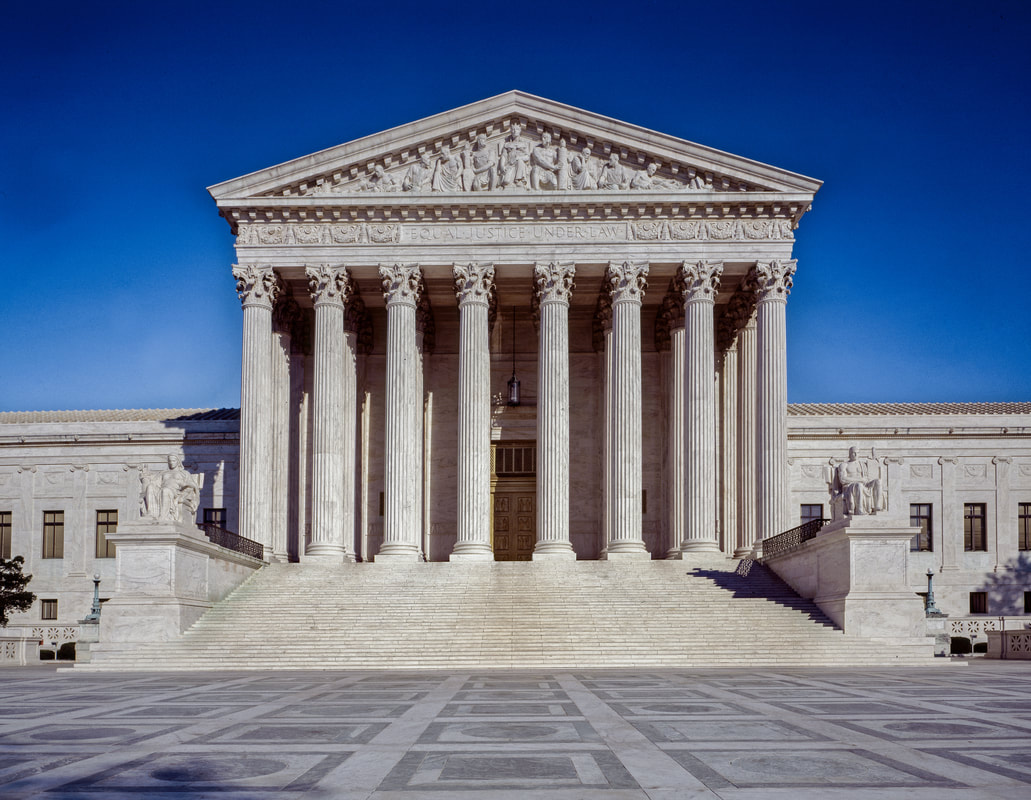|
By Grace Yuan '23 (U.S. Supreme Court, Washington, D.C.—Image Credit: The Carol M. Highsmith Archive, Library of Congress, Prints and Photographs Division) Abortion has been legal in most American states and regions since 1973 when, in Roe v. Wade case, the U.S. Supreme Court granted women the right to an abortion. However, despite this federal blanketing abortion law there still exists antagonistic issues about abortion laws. The divisive and contentious issues spawn the American cultures, society, religions and political divide. Texas recently passed and implemented a heartbeat abortion law, Senate Bill 8 (SB8), which almost bans abortion in the state. The abortion law has brought about heated debate and legal proceedings in the Supreme Court on its constitutionality and structure by the federal government and abortion providers. The Texas abortion law came into effect on Sept. 1, 2021, after efforts to block its implementation at the Supreme Court failed. The SB8 is a law that almost bans any type of abortion after six weeks of pregnancy or when the heartbeat is detected. Additionally, it does not give exceptions for incest, and rape while other special circumstances are not clearly stipulated. This is in contrast to the 1973 ruling on Roe v. Wade that gave the right to an abortion up to about 24 weeks of pregnancy and before viability.
However, the way the law is written and structured makes it almost impossible to challenge in court. This is because it bars all state officials from barring or attempting to bar any person from carrying out an abortion. However, it gives the public and any private members to sue anybody who provides abortion services or abets abortion to any woman after six weeks of gestation. The complainants cannot be fined or asked to pay attorney fees even if they lose. Conversely, if they win, they are entitled to receive an attorney fee and a bounty of $10,000 from the defendant. In addition, they can be sued several times by different persons in the same case. The federal government through the Attorney General has initiated a court case against the law deeming it unconstitutional. According to the Attorney General, the abortion law transgresses the federal laws on abortion. The Justice Department officials argue that such a law was pre-empted by the Constitution. Additionally, they assert that the provisions of the Supremacy Clause, Constitution, and the 14th Amendment invalidate such a law. They further add that such a law infringes the intergovernmental immunity doctrine due to its assumption of the constitution. The case by the abortion providers seeks to make the abortion law open to federal court review since it hinders access to a constitutional right. A closer look at the two cases highlights that the cases brought to the Supreme Court by the two plaintiffs are not about constitutionality. Rather, they are cases that seek to determine the enforceability of the law and whether the law can be open to scrutiny in a federal review process. This is because in a constitutionality case, a plaintiff has to name state or public officials as the defendants. However, in the Texas abortion law, the state officials are not the enforcers and hence they cannot be named as defendants. Specifically, the state officials have been barred from take any part in the enforcement. The general public and private citizens have been given the mandate to enforce the SB8 without any involvement of state authorities. Additionally, the women seeking abortion cannot be sued and hence their plea for a constitutional right cannot be used. As such, the design and the structure of the abortion law leaves the Supreme Court judges in a tight spot. Such an argument is held because if the court allows the law to stand other states including Texas might pass similar laws to deny constitutional rights such as gun ownership and same sex nuptials. Could this be the end of abortion in America? However, it is only good that the Supreme Court is not pre-emptied and a judgement is awaited. Comments are closed.
|
Photos from Verde River, Manu_H, focusonmore.com, Brett Spangler, Cloud Income

